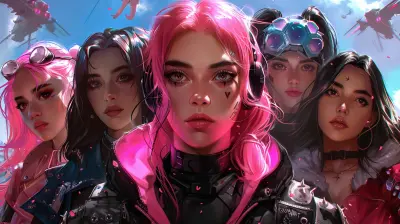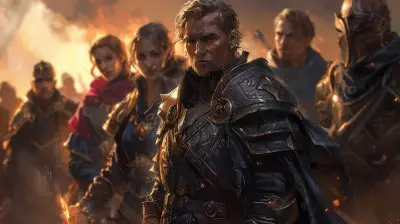Characters That Showed Real Growth Over Time
2 November 2025
Let’s be honest—games aren’t just about flashy graphics and cool mechanics anymore (though we do love those too). What pulls a lot of us in and keeps us coming back for more is the story. And within that story? It’s the characters.
You know the ones. The screw-up who becomes the hero. The cold-hearted warrior who finds their humanity. The sidekick who steps into the spotlight. Character growth can make or break a game’s narrative. Whether it’s subtle or in-your-face, seeing someone change across a game—or even an entire series—hits deep.
So, let’s dive into some of those standout characters who’ve shown real growth over time. These are the ones who start one way and end up somewhere totally different—in the best possible way.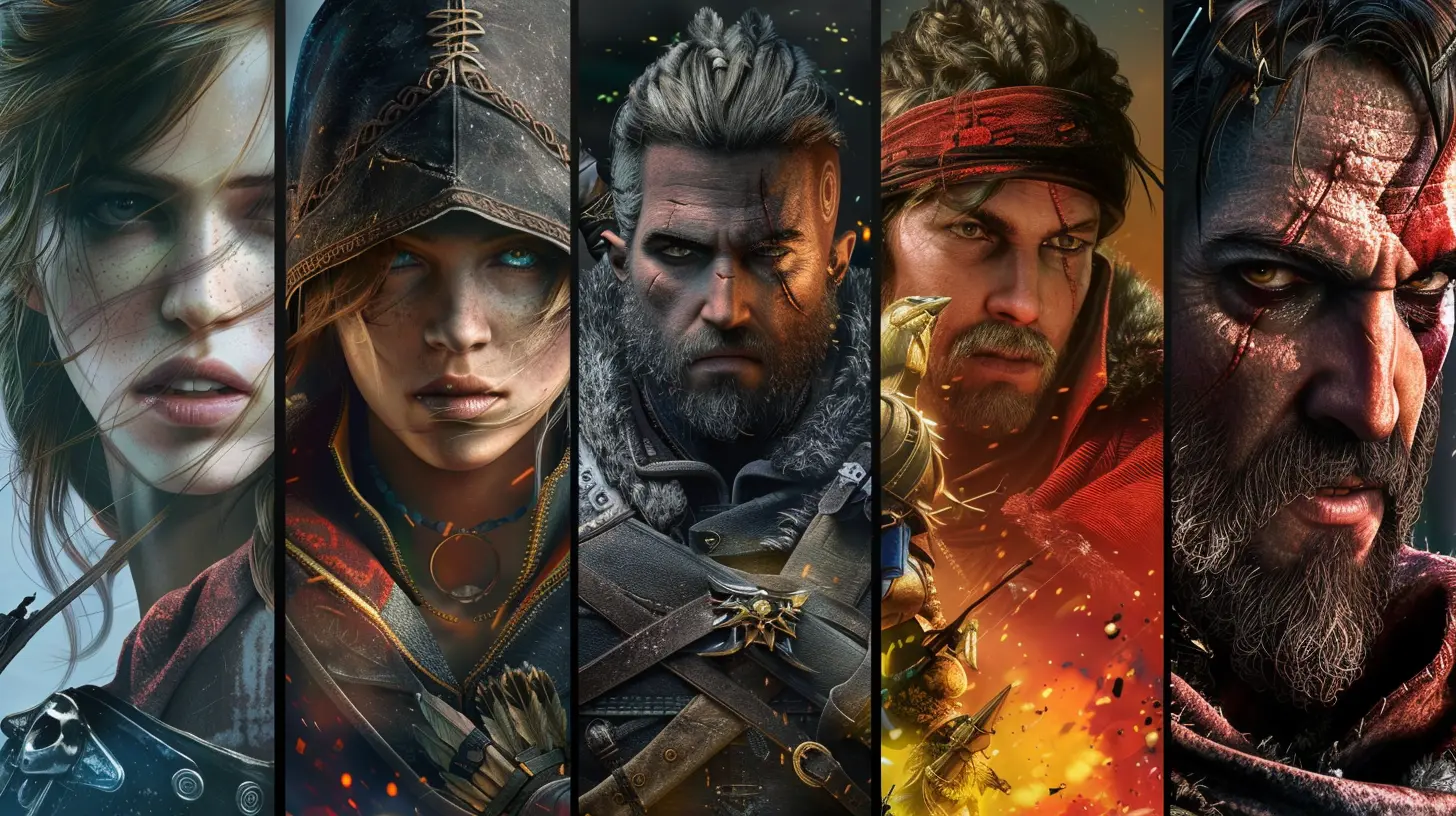
1. Kratos – God of War Series
If there’s one character who defines emotional glow-up, it’s Kratos. At the beginning of the original God of War titles, he was all rage and vengeance. Honestly, he was a walking ball of destruction. He was brutal, angry, and emotionally clenched tighter than the Blades of Chaos.But fast forward to the 2018 reboot and Ragnarök? We see a whole new side of him. Kratos becomes… a dad. And not just any dad, but a protective, cautious, emotionally struggling one trying to do better. Instead of lashing out, he's teaching his son Atreus how to be better than he was.
Of course, he’s still capable of smashing a God’s face in, but now he questions whether he should. That internal conflict, that growth from fury to wisdom—it’s one of gaming’s most satisfying arcs.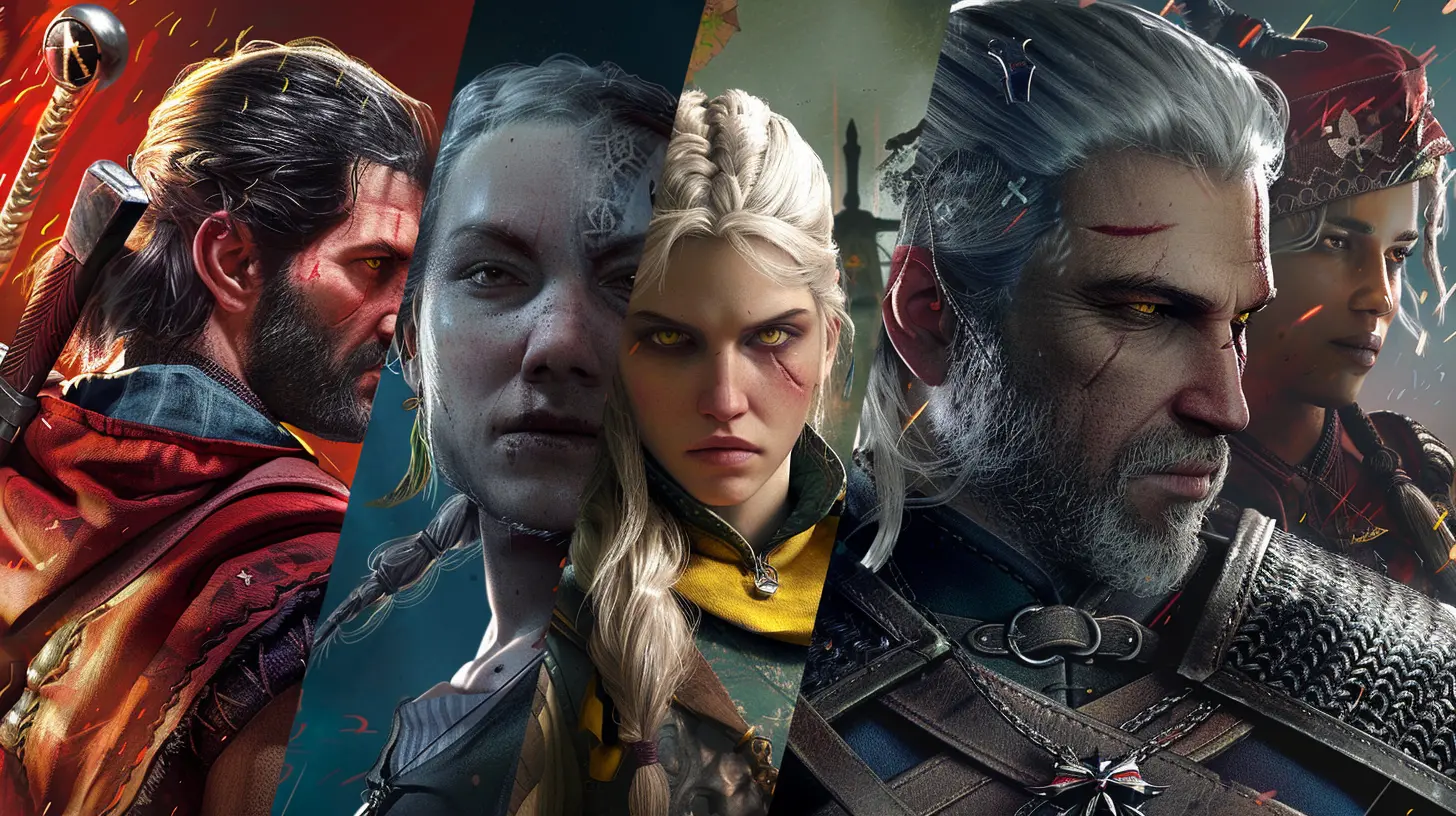
2. Arthur Morgan – Red Dead Redemption 2
Arthur starts out as your typical outlaw-gunslinger—gruff, loyal, and kind of morally gray, right? But Red Dead Redemption 2 gives us one of the deepest character studies in video game history.As the world around him begins to unravel and his own mortality stares him in the face, Arthur reflects. He questions his choices, his loyalty to Dutch, and the kind of legacy he’s leaving behind. Depending on how you play him, you can guide Arthur toward redemption.
What makes Arthur’s growth resonate is that it comes with age, regret, and personal reckoning—something incredibly human. His transformation feels raw and real, not forced.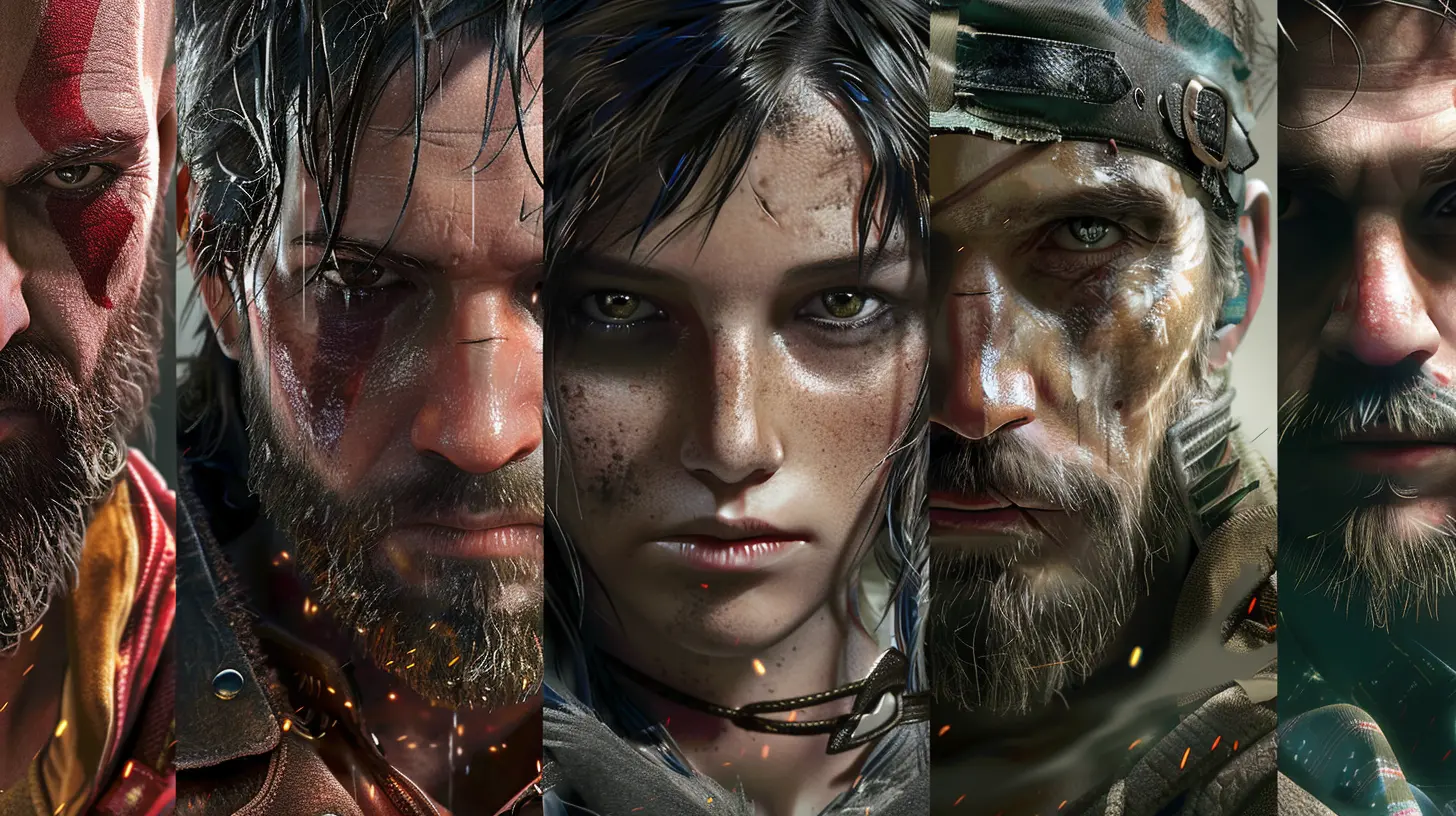
3. Aloy – Horizon Zero Dawn & Horizon Forbidden West
Let’s talk about Aloy. Born an outcast and raised by a recluse, this fiery redhead had the odds seriously stacked against her. But what makes her journey special isn’t just the post-apocalyptic robot-dinosaur hunting (although, how awesome is that?).Aloy’s growth is about confidence. She starts off angry, determined to prove herself. But gradually, she becomes a leader. Not because she’s chasing fame, but because she learns empathy, responsibility, and the value of knowing where you come from.
In Forbidden West, we see her dealing with the strain of being the world’s savior—struggling with isolation, trust, and the weight of her role. That kind of emotional depth? Chef’s kiss.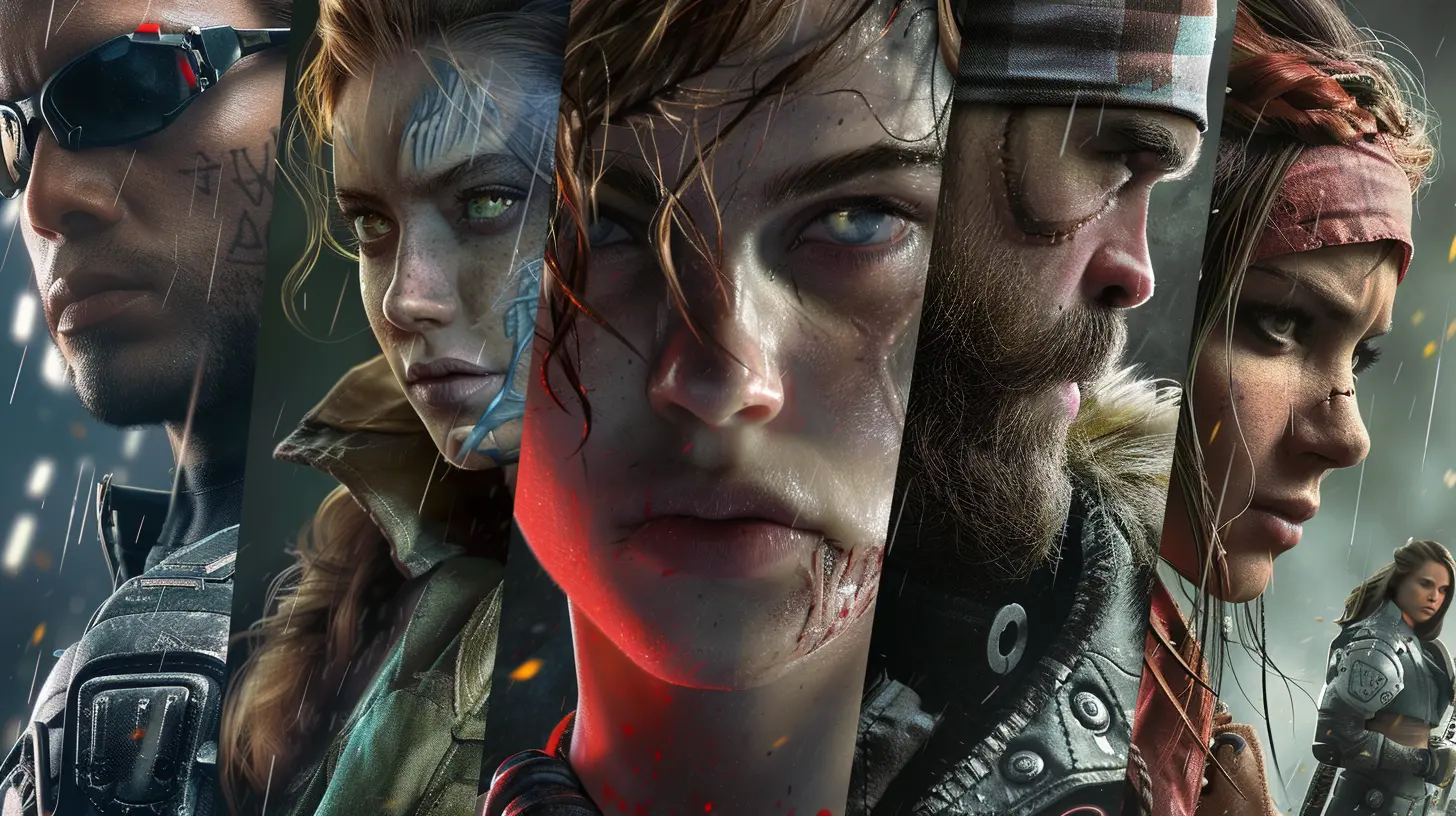
4. Clementine – The Walking Dead Series by Telltale
Anyone who’s played Telltale’s The Walking Dead series knows that watching Clementine grow up is like watching your own kid go from diapers to graduation.She starts out as a scared little girl, relying on Lee to survive the zombie apocalypse. But by the end of the series, Clementine is the protector, making gut-wrenching choices, leading others, and fighting to keep what pieces of humanity are left.
Her growth is so well-paced, so carefully crafted over multiple seasons that you genuinely feel proud. It's not just age—it’s wisdom earned through pain, love, and survival.
5. Jin Sakai – Ghost of Tsushima
Here’s a guy caught between tradition and necessity. Jin Sakai begins as a loyal samurai, bound by honor and the teachings of his uncle. But a Mongol invasion forces him to adapt, and things get morally messy real fast.As Jin adopts the Ghost persona and begins using stealth and fear to win battles, you can feel his internal struggle. Every move away from the samurai code brings him closer to saving his people—but further away from who he was raised to be.
Jin’s growth is subtle. It’s not about good vs. evil—it’s about identity, cultural shifts, and sacrifice. That makes his journey feel incredibly personal.
6. Ellie – The Last of Us Series
Ellie’s journey is one of the most emotionally complex in gaming. In The Last of Us, she starts as a sassy, foul-mouthed teenager with a hidden vulnerability. But by the time we reach Part II, she’s endured more than most could handle.Her growth isn’t a straight upward line. It’s messy. She shifts between innocence and vengeance, hope and despair. You might not always agree with her choices, but you feel them. Because we’ve seen her change—we’ve been with her every brutal step of the way.
It’s rare to see a character arc that feels this raw and human. Ellie’s journey rips your heart out and hands it back to you in pieces.
7. Sephiroth – Final Fantasy VII Remake
Okay, hear me out. Sephiroth doesn’t just go from zero to villain—his transformation across Final Fantasy VII and the Remake is layered.Initially, he's the golden child of SOLDIER: noble, respected, powerful. Then he learns the truth about his origins… and snaps. His descent from hero to madman is gradual, and the Remake adds even more nuance.
What makes Sephiroth’s arc fascinating isn’t just the fall—it’s the why. It challenges the idea of identity and destiny. And even as he becomes the antagonist, you still get glimpses of the man he used to be.
8. Geralt of Rivia – The Witcher Series
Here’s a character who’s been around for decades, and still manages to grow in unexpected ways. Geralt, the gruff mutant monster hunter, is known for his deadpan humor and no-nonsense attitude.But across the Witcher games, especially The Witcher 3: Wild Hunt, we see the softer side emerge. Most of that’s thanks to his relationships—with Yennefer, Triss, and especially Ciri.
Geralt evolves from being just a sword-for-hire into a father figure. He questions politics, gets emotionally involved, and even cracks a genuine smile or two. For a guy who was genetically modified to feel less, that’s some serious growth.
9. Lara Croft – Tomb Raider Reboot Series
Lara went from pixelated pin-up in tiny shorts to a believable, emotionally resonant protagonist in her reboot trilogy.In Tomb Raider (2013), she starts out scared and inexperienced—just trying to survive after crash-landing on a dangerous island. But as the series unfolds, we watch her become a skilled adventurer and hardened survivor.
What sets her apart is that her growth doesn’t make her lose her humanity. She’s not fearless; she’s brave despite fear. That’s real character development.
10. Cloud Strife – Final Fantasy VII & Remake
Cloud is complicated, and that’s putting it lightly. At the start of FFVII, he’s all swagger and aloofness. But as the game reveals more about his past, we learn that confidence is a mask for trauma and identity confusion.In the Remake, that internal battle is brought to life with even more emotional depth. Cloud doesn’t grow because he wants to—he grows because he has to face the truths about who he is and what he stands for.
His arc isn’t about becoming stronger, it’s about becoming real—dropping the act and embracing his messy, vulnerable self.
Why These Characters Matter
So, why do we care if a character grows or not? Because, just like in real life, growth makes people relatable.When we see characters change—whether they start out angry, confused, broken, or scared—and become someone better (or at least more self-aware), it hits home. It reminds us that we can change, too. And in a world full of pixels and polygons, that emotional connection is priceless.
Games aren’t just games anymore. They’re stories. They’re personal. And these characters? They’re a big reason why we keep coming back to replay, rewatch, and relive their journeys.
Honorable Mentions
Let’s throw some love to a few other characters who showed serious evolution:- Max Caulfield from Life is Strange – From shy wallflower to time-bending heroine.
- Marcus Fenix from Gears of War – From grizzled soldier to emotional leader.
- Senua from Hellblade – A heartbreaking but empowering mental health journey.
- Link from Breath of the Wild – A silent hero with memories that slowly shape him.
These characters might not have made the main list, but their growth? Still powerful, still worth celebrating.
Final Thoughts
Character development might not be the first thing that sells a game, but it’s often what makes it unforgettable. Whether it’s through trauma, redemption, loss, or love—watching characters grow is one of gaming’s biggest emotional payoffs.Next time you're deep into a game and wondering why it's hitting you in the feelings, look at the characters. Chances are, you're witnessing growth. And that? That’s storytelling magic.
all images in this post were generated using AI tools
Category:
Best Game CharactersAuthor:

Luke Baker
Discussion
rate this article
1 comments
Virginia Pacheco
This article beautifully highlights character development in gaming. It’s fascinating to see how characters evolve through experiences and challenges, which adds depth to their stories. These transformations not only enhance gameplay but also create memorable connections with players. Great insights!
November 5, 2025 at 5:38 PM

Luke Baker
Thank you! I'm glad you enjoyed the article and found the insights on character growth and its impact on gameplay meaningful.
